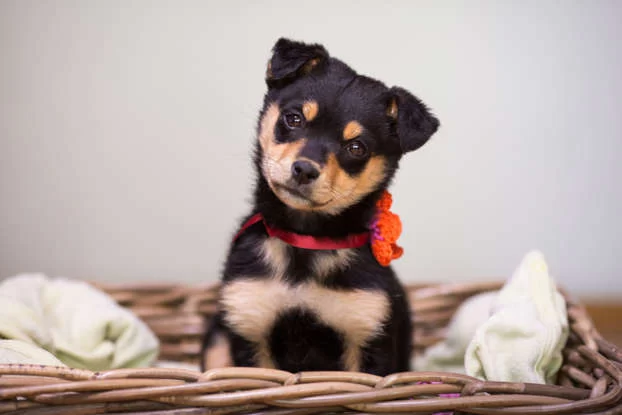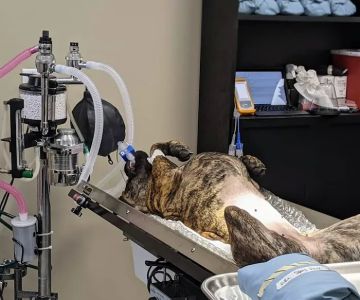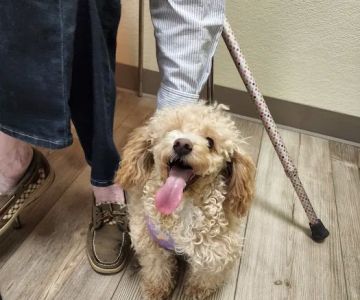- Understanding Rescue Puppy Socialization
- Step-by-Step Socialization Process for Rescue Puppies
- Overcoming Common Challenges in Socializing Rescue Puppies
- Real-Life Case Study: Socializing a Rescue Puppy Successfully
- Professional Support and Resources for Puppy Socialization
Understanding Rescue Puppy Socialization
Socializing a rescue puppy is a crucial step toward raising a well-adjusted, confident dog. Unlike puppies raised in stable environments, rescue puppies often come with unknown or difficult pasts, which can affect their ability to interact comfortably with people, other animals, and new surroundings. Understanding the unique nature of rescue puppies is the foundation for developing a thoughtful and effective socialization plan.
Socialization means exposing your puppy to a variety of sights, sounds, experiences, and companions in a positive and controlled manner. This process helps them develop essential social skills and reduces fear, anxiety, or aggression. For rescue puppies, this can be a delicate journey requiring patience and empathy, because their previous experiences might have involved trauma or neglect.
Key aspects to recognize include:
- Emotional baggage: Rescue puppies may be fearful or mistrustful initially.
- Individual temperament: Each puppy reacts differently to stimuli and new environments.
- Timing and consistency: Socialization should be gradual but consistent to build positive associations.
Why early and tailored socialization matters
Early socialization lays the groundwork for a puppy’s future behavior. For rescue puppies, the earlier you start (while respecting their readiness), the better the chances of reversing any negative patterns. Tailoring your approach to their comfort level and progress will foster trust and willingness to engage with the world.
Step-by-Step Socialization Process for Rescue Puppies
Effectively socializing a rescue puppy involves a structured and empathetic approach, balancing exposure with safety and positive reinforcement. Here is a detailed breakdown of a typical process:
1. Creating a safe and calm environment
Start by establishing a secure home base where your puppy feels safe. This can be a quiet room with familiar bedding and toys. Minimizing sudden noises and activity allows your puppy to adjust gradually.
2. Controlled exposure to new people and animals
Introduce your puppy to calm, friendly people and vaccinated dogs in a controlled setting. Use positive reinforcement like treats and praise when your puppy remains relaxed. Avoid overwhelming your puppy with large groups or boisterous play until they show comfort.
3. Introducing new sounds and environments
Gradually expose your rescue puppy to common household noises (vacuum, doorbell) and different locations (park, car rides). Start with short, positive sessions and build duration as your puppy adapts.
4. Teaching social cues and boundaries
Socialization isn’t just exposure but learning appropriate interactions. Encourage gentle play and discourage fear-based reactions with consistent, gentle correction and rewards for calm behavior.
5. Monitoring stress signals and adjusting pace
Watch for signs of stress, such as yawning, lip licking, or avoidance, and slow down the process if needed. Building confidence takes time, and pushing too fast can backfire.
Overcoming Common Challenges in Socializing Rescue Puppies
Socializing a rescue puppy is not without its hurdles. Challenges like fearfulness, resource guarding, or past trauma can complicate the process. Here are strategies to address common issues:
Fear and anxiety
Use desensitization and counter-conditioning methods, pairing feared stimuli with treats and comfort. Patience and consistency are vital. Avoid forcing interactions, which may worsen anxiety.
Resource guarding
Some rescue puppies may guard food or toys due to past scarcity. Gradual trust-building exercises and positive exchanges where you trade items for treats can help reduce guarding behavior.
Social aggression
If your puppy shows aggressive behavior towards other dogs or people, consult with a professional trainer or behaviorist early. Structured socialization with expert guidance can prevent escalation and promote safer interactions.
Real-Life Case Study: Socializing a Rescue Puppy Successfully
Take the story of Max, a two-month-old rescue puppy brought to a shelter after being found abandoned. Initially fearful and shy, Max would hide and avoid contact. His new owner began by creating a calm, secure home environment and introduced Max to one calm dog friend gradually. Over several weeks, with short, positive encounters and plenty of patience, Max began to show curiosity and playfulness.
Max’s owner also used regular visits to Hidden Brook Veterinary to ensure Max’s health and get professional advice tailored to his temperament. These visits helped manage Max’s anxiety and reinforced the socialization process through expert guidance and appropriate products recommended for his needs.
Today, Max enjoys outings to the dog park, social playdates, and shows no signs of his early fearfulness—an inspiring example of what thoughtful socialization can achieve.
Professional Support and Resources for Puppy Socialization
While owner dedication is essential, professional support can accelerate and enrich the socialization journey. Veterinary clinics like Hidden Brook Veterinary provide not only medical care but also behavioral consultations, training recommendations, and product suggestions tailored for rescue puppies.
Behavioral specialists can design customized socialization programs, and trainers can assist with specific issues like leash reactivity or separation anxiety. Additionally, high-quality socialization tools and toys available at Hidden Brook Veterinary help create positive learning experiences for your puppy.
In conclusion, socializing a rescue puppy is a rewarding but delicate task that requires understanding, patience, and well-planned strategies. Combining a structured approach with professional support ensures your rescue dog grows into a confident, happy companion ready to embrace the world.












